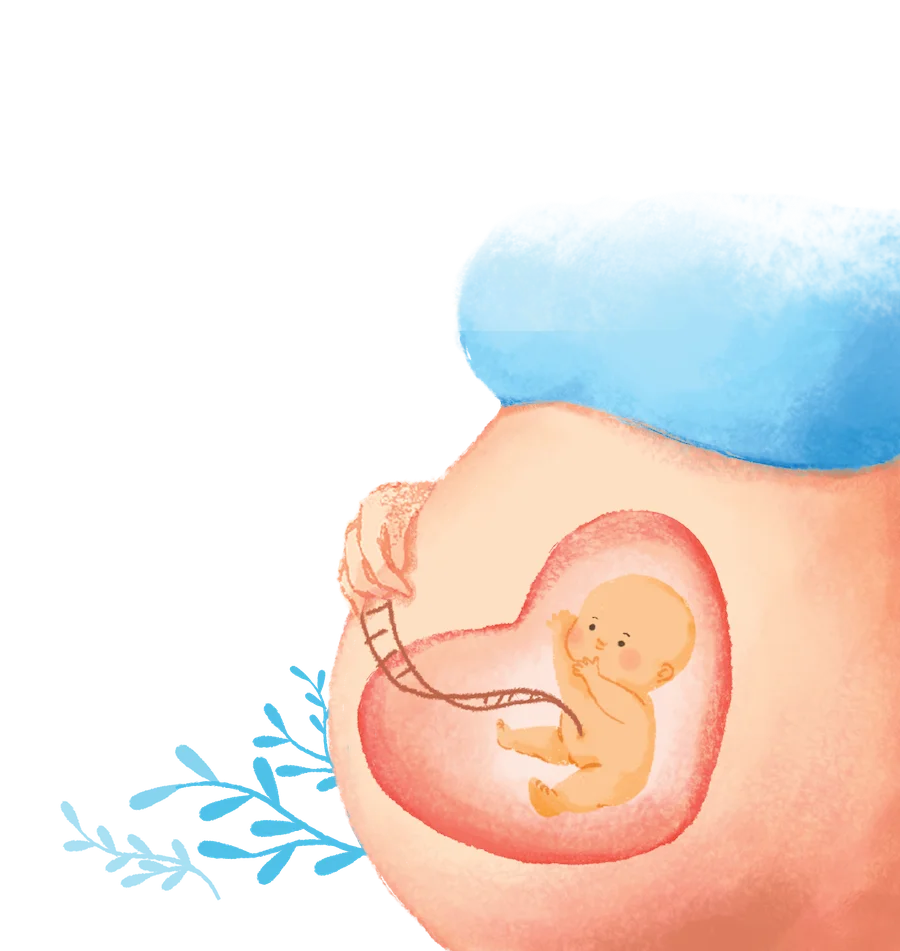Understanding your genes
A healthy start for your children
A screening test for nine recessive genetic disorders among parents, helping assess the possibility of disease inheritance to their children. Can be performed before or during pregnancy

5 -
7%World population are carriers of Thalassemia. 56,000 children are born with Thalassemia major/year (*)
World population are carriers of G6PDd. 2,9% are G6PD deficient (**)
of infants born with genetic abnormalities have healthy parents (***)
(*) Global Thalassemia Review 2023 - THALASSEMIA INTERNATIONAL FEDERATION
(**) WHO/UCN/GMP/MPAG/2022.01
(***) Blythe SA, et al. Clin Biochem. 1984; 17(5): 277-283
What is a recessive genetic disorder?
Clinical manifestations
Moderate to severe symptoms
Genotype
Carries two copies of the mutated gene
Genotype
Carries one copy of the mutated gene
Clinical manifestations
Asymptomatic or mild symptoms
What if both parents are carriers?
- Children with an autosomal recessive disorder manifest symptoms when they inherit both copies of a mutated gene from their parents.
- If parents are carriers of a recessive genetic disorder, each child may have a 25% chance of having this recessive genetic disorder.
Autosomal recessive inheritance pattern
Even if the mother or father does not manifest symptoms, their children are still at risk of having a recessive genetic disorder.
Benefits of triSure Carrier
Early screening of recessive genetic disorders in parents or pregnant women
Assess the possibility of disease inheritance to children
Free testing for mother/father and children
Provide women with options to give birth safely
Equip doctors with information regarding early intervention after birth

The most common monogenic recessive diseases
Alpha thalassemia
HBA1, HBA2
Beta thalassemia
HBB
Galactosemia
GALT
G6PD Deficiency
G6PD
Protein intolerance (Phenylketonuria)
PAH
Citrin deficiency
SLC25A13
5-alpha reductase deficiency
SRD5A2
Pompe disease (glycogen-storage disease type 2)
GAA
Wilson's disease (disorder of copper metabolism)
ATP7B
Congenital Adrenal Hyperplasia (CAH)
CYP21A2
Spinal muscular atrophy (SMA)
SMN1
Polycystic kidney disease (PKD)
PKHD1
Niemann-Pick disease
SMPD1
Adrenoleukodystrophy (ALD)
ABCD1, X-linked
Charcot-Marie-Tooth disease type 2S
IGHMBP2
Ornithine transcarbamylase deficiency (OTC)
OTC, X-linked
Pendred syndrome / Nonsyndromic hearing loss
SLC26A4
Hemophilia A
F8, X-linked
Primary carnitine deficiency
SLC22A5
Cystic fibrosis
CFTR
* Exclusive research data on 26,000 Vietnamese people and an international publication titled “Frequency of latent disease in Vietnamese people” based on statistics from 985 G4500 samples published in the Human Mutation journal IF 4.8
Who should take the triSure Carrier test?

Prenatal screening for pregnant women

Parents are preparing for IVF (a screening gene test)

Those planning to marry should have premarital latent disease screening to determine the best possible pregnancy plan
